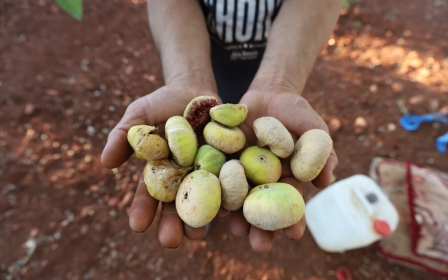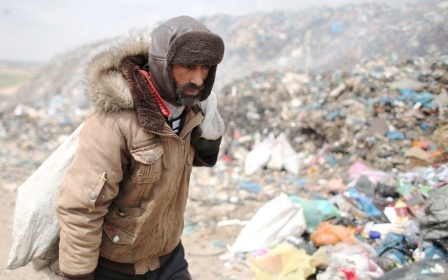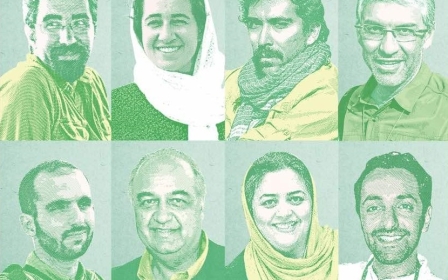
In pictures: War, climate change and cheap imports squeeze citrus crop in Syria’s Idlib

Omar Al-Salmawi, a 56-year-old farmer from the village of Bikfa in Idlib, Syria, has seen first hand the effects of climate change - especially fires and blistering temperatures - on his orange crops.
What's more, said Khaled Al-Salmawi, Omar's cousin, "Shells falling close to agricultural crops lead to trees catching fire.” (All photos by Ahmed Fallaha)
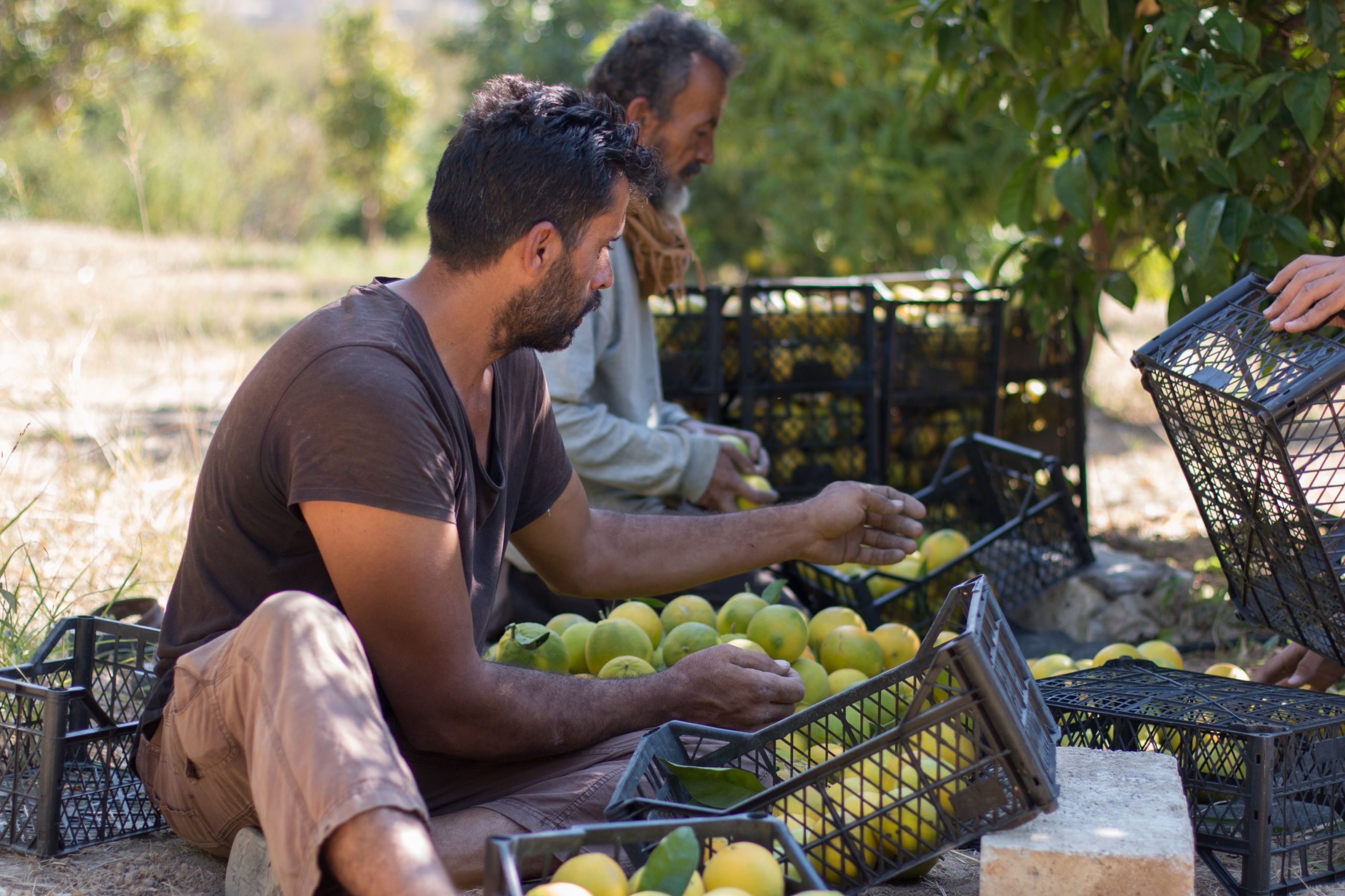
The town of Bikfla is famous in Idlib for its citrus fruits. Three rivers - White, Great and Orontes - once provided abundant water for them to grow, and a good source of income for farmers like Omar.
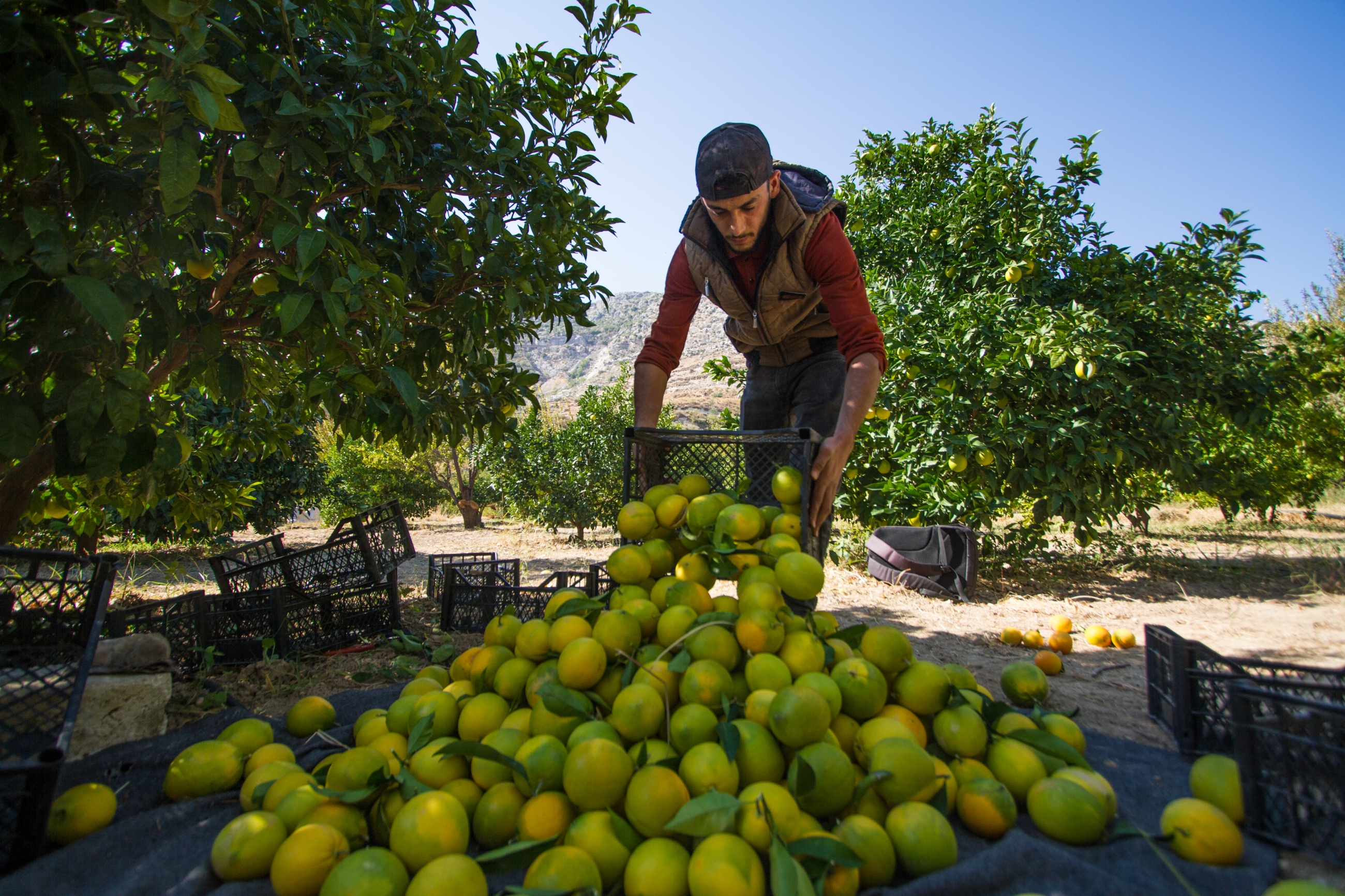
"Before the war, we used to welcome the harvest season with joy and happiness,” Omar told MEE. “But now, with the low price of citrus fruit and the high cost of fertilisers, we are no longer able to harvest the crop as before."
Syrian farmers also suffer financially because of foreign fruit imports, which have led to a significant drop in prices.

"The war led to big changes in fruit imports, which created fruit shortages in Idlib and Aleppo’s countrysides,” said Ahmed Al-Kwan, the assistant minister of agriculture and irrigation of Idlib governorate.
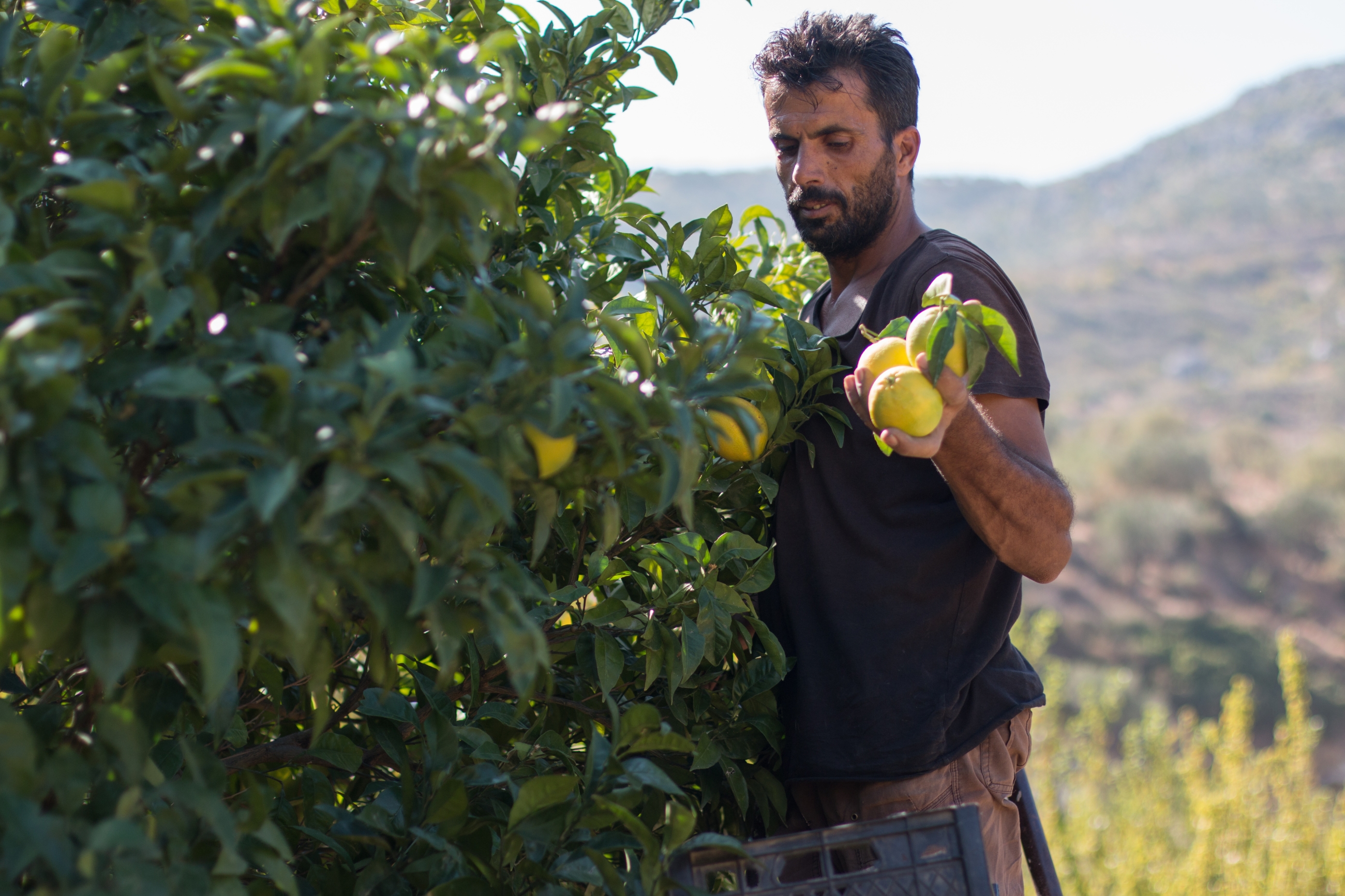
Over the years, rainfall rates have decreased in Syria as temperatures have shot up, leading to crippling desertification and significant damage to agricultural land.
This will likely lead to a decline in agricultural production and an increase in plant diseases and pests, according to research from the International Food Policy Research Institute.
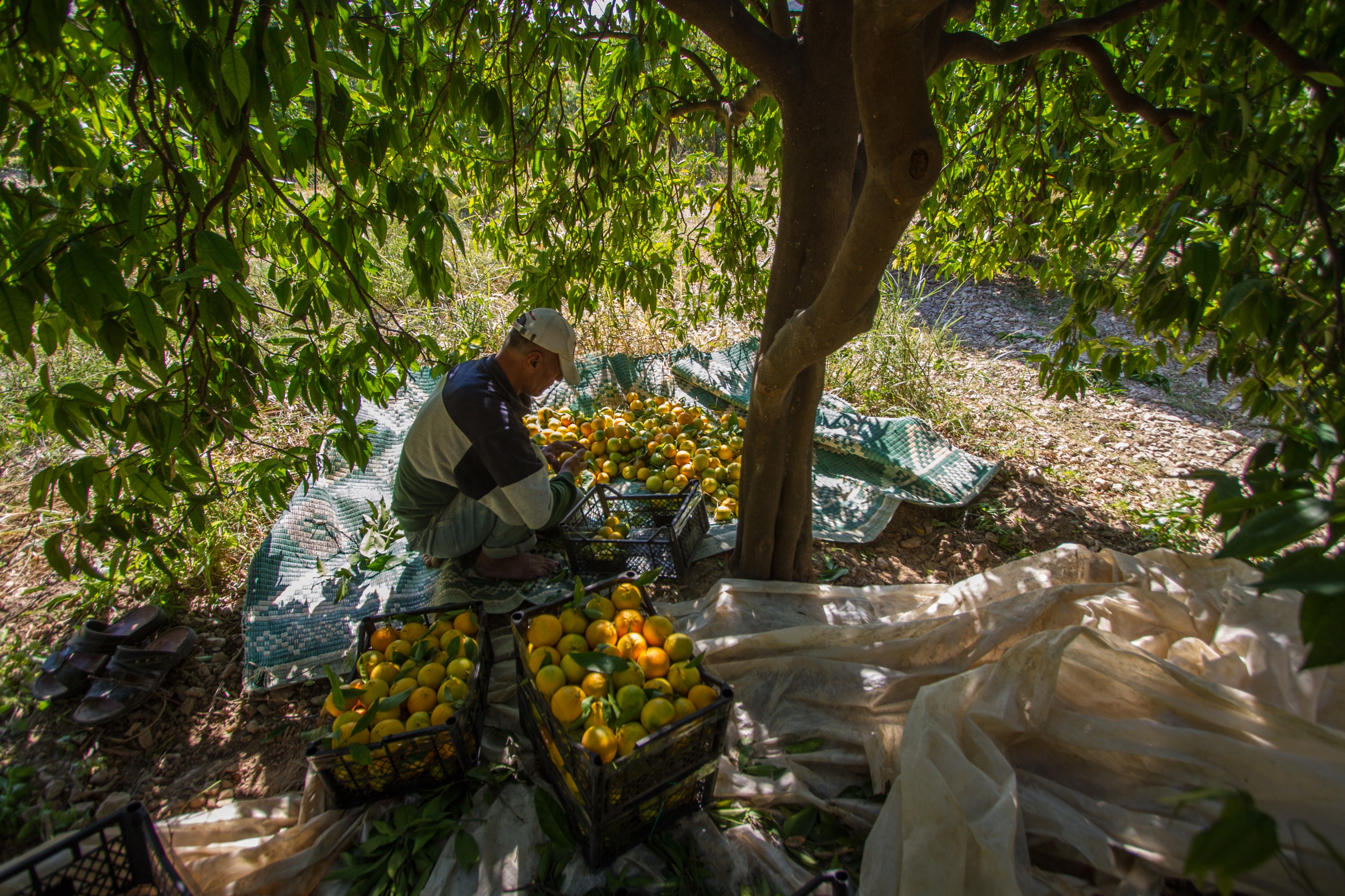
Man-made desertification and a lack of irrigation resulting from climate change have affected up to 60 percent of Syria’s land and an estimated 1.3 million people, according to a United Nations and International Federation of the Red Cross and Red Crescent Societies report.
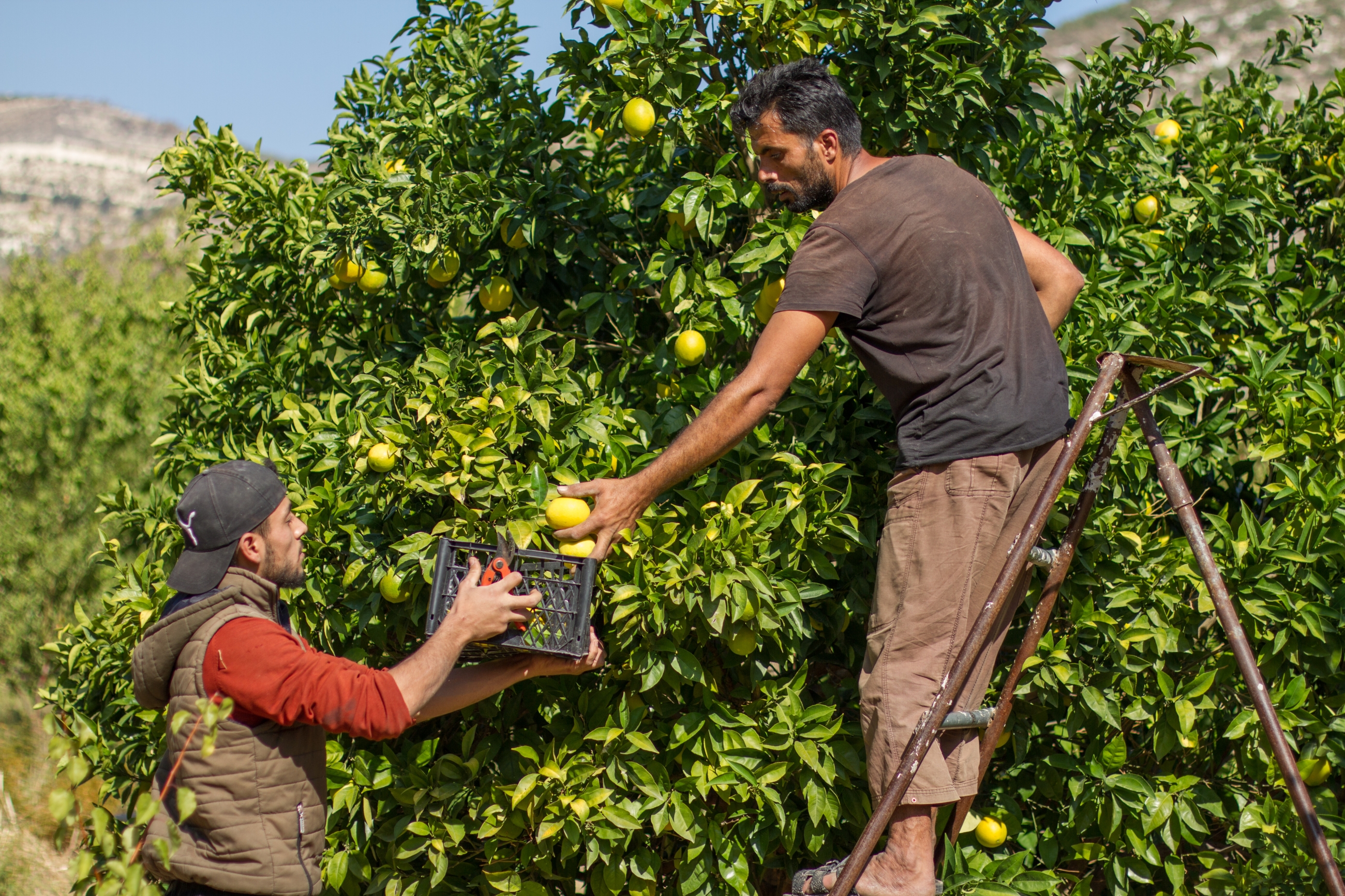
“The crops no longer bring us a reliable income," said Khaled.
Middle East Eye propose une couverture et une analyse indépendantes et incomparables du Moyen-Orient, de l’Afrique du Nord et d’autres régions du monde. Pour en savoir plus sur la reprise de ce contenu et les frais qui s’appliquent, veuillez remplir ce formulaire [en anglais]. Pour en savoir plus sur MEE, cliquez ici [en anglais].


